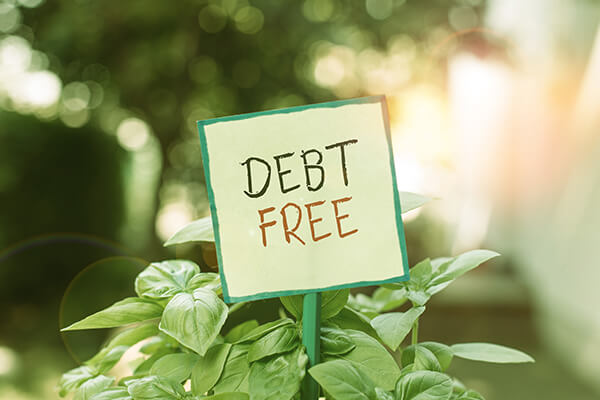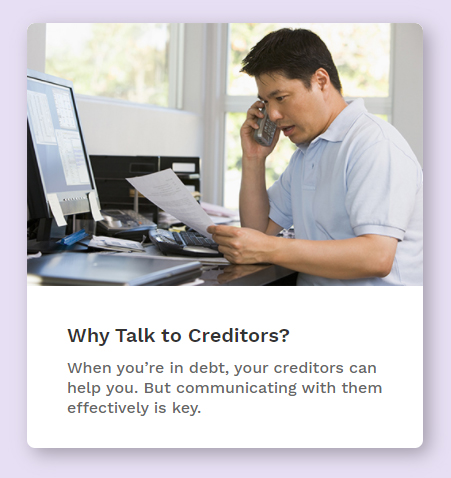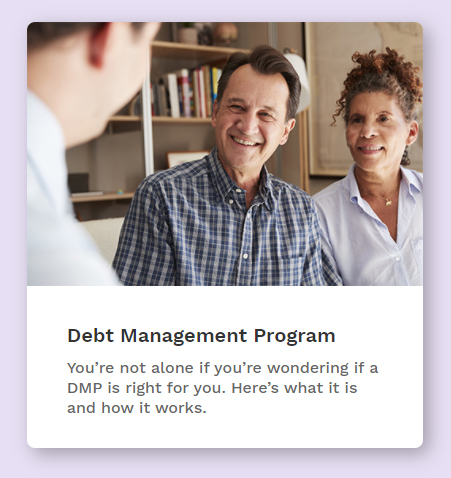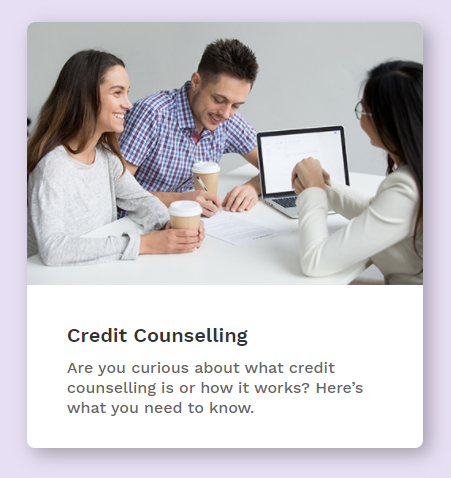Almost Free From Credit Card Debt? 6 Things to Do to Stay Out of Debt
By Carmen Chan
You’ve tackled your credit card debt, stayed committed to your debt repayment plan, and after years of dedication you’re nearly debt free. Now that you’re in the green, have you thought about what you’re going to do with the extra cash you’ll no longer put towards debt repayments? What about how you’ll stay out of debt for good?
The average Canadian’s non-mortgage debt is now over $30,000, which includes significant credit card debt. That’s a lot of debt to pay off and when you complete this feat, it can be a bittersweet feeling – a mix of relief and accomplishment with fear of change and relapsing into old habits.
After years of budgeting, tracking your spending, and nickeling and diming, the last thing you want to do is fall back into the old habits that got you into debt.
If you’re wondering about what’s on the horizon once you’re debt free, here are 6 things you should do to ensure you stay on track as you continue into the next phase of your debt-free journey.
1. Prepare in Advance
Before you hit your goal of clearing your debts, 6 – 12 months ahead of time start planning for what’s coming. You’ll know when you’re getting close to approaching the finish line as your total debts creep closer to a $0 balance.
You’ve been laser-focused on prioritizing monthly payments to your debts, but now you need to shift gears and visualize what comes next and what’s important to you. Ask yourself a series of questions and take notes:
- What are my personal and financial goals for the future?
- What have I longed to do but couldn’t afford as I paid off my debts?
- What is a realistic and comfortable lifestyle for myself and my family?
- What would make me happy?
- What are my priorities for the upcoming year?
- Do I have any other lingering financial concerns I want to address?
Maybe you’ve realized you want to save for a down payment, focus on paying off your mortgage, or you want to research retirement savings.
After years of living off of meals at home, you might decide on a bi-weekly dinner date out, or that carefully bumping up your entertainment budget would make you happy. You may have halted any travel plans and you’d now like to plan a trip in the upcoming year. Take stock of your plans and hopes for the future.
Your journey to being debt free doesn’t end once you’ve cleared your debts – these next steps are just as valuable, will shape your financial planning, and should motivate you, too.
2. Shield the Money From Reactive Spending
Debt repayment is ideally around 5 – 15 percent of your income. But when you’re struggling with debt, you could be siphoning off one-fifth of your income – if not more – towards your debt consolidation loan, credit card debt, and other consumer debts.
If you’re living at home with a full-time job and a hefty student loan, you could have been funnelling much more towards your debt than a single-income family with a mortgage. Your debt repayments could have clocked in at as little as a couple of hundred dollars, to large sums of about $2,000 a month. That’s a lot of income that is no longer tied up in debt repayment.
While it’s still unclear what you’ll do with this freed up cash, keep it tucked away so it’s out of reach. Create a separate savings account for that cash and automate payments to it until you decide what to do with your freed-up cash. This will stop you from spending the free income on old vices and keep it safe from yourself.
Tips to Stop Impulsive Spending
3. Stick to Your Budgeting Routine
During your years of debt repayment, you may have worked with a credit counsellor to track your spending, build a budget, and measure your progress. While it’s tempting to just kick back and relax when you’re debt free, these are essential habits you’ll need to maintain to keep yourself out of debt for the rest of your life. You know the system that works for you – don’t mess with a good thing.
However, it’s time to reconfigure your budget strategically and realistically. For instance, your budget for discretionary spending can creep up modestly so you’re no longer shopping at second-hand stores, subsisting on beans and rice cooked at home, or skipping out on birthday drinks with friends. If you want a Friday afternoon Starbucks treat, or an extra $20 to go to the movies each month, work these into your new budget but tread carefully; make sure your budget balances out with these new additions.
Maintaining a budget is critical now that you have more wiggle room with your income. You need to strike the right balance – you don’t want or need to keep a bare bones budget, but you need to find the sweet spot with your spending.
Budgeting Spreadsheet – Free Download to Help You Juggle Your Numbers
Because you’re still tracking your spending, you’ll notice straight away if you’re overspending in certain categories or you aren’t hitting savings checkpoints on time. As you tweak your budget, paying close attention to your savings and spending habits in the subsequent months after becoming debt free will ensure you don’t veer off track. Savings is an important expense – make sure to see it that way in your budget.
Plan for a splurge, too – because you know you’ve earned it. Earmark a one-time expense – whether it’s splashing out on a fancy dinner or treating yourself to a new outfit – in your budget and make sure it doesn’t exceed the amount you would’ve contributed towards your debt. And remind yourself that this is a one-time celebration.
4. Beef Up Your Emergency Savings Fund
The first place to reallocate your debt repayment funds to is an emergency savings account. While you were in the middle of debt repayment, you might have added $10 or $20 towards this account each month – or nothing at all – but now that you’re debt free, it’s time to build up your slush fund.
Calculate how much money you need for living expenses per month, including rent/mortgage, food, transportation, and paying your essential bills. Aim to save up about six months’ worth of expenses stashed away in a savings account for emergency purposes only.
The debt you may have incurred could have been triggered by an emergency — a last minute roof repair, replacing your car, or a job loss. This time around, you want to be prepared for whatever Murphy’s Law throws your way.
5. Set New Short and Long-Term Goals
Now that you’re debt free, you can shift your priorities to new savings goals. You’re no longer aiming to wipe out your credit cards with the highest interest rates or paying off the last of your debt consolidation loan. Your income is now all yours.
Aim to set three to five goals, a mixture of short- and long-term ones. Short-term goals can be achieved within a year or two, such as saving up for a family vacation, buying a new laptop, or putting $1,000 into a TFSA (Tax-Free Savings Account).
Long-term goals look further ahead, such as saving up $20,000 for a down payment, getting a new car, or hitting a major milestone with your retirement savings. These are big plans. While you could barely whittle away at these priorities while you were in debt, you could now be depositing bigger chunks of savings into accounts for these various goals.
Think of how liberating it would feel to see your budget include savings for travel, retirement, or a down payment. Set these up and direct the funds that used to be for debt repayment to these accounts. Some people have as many as 10 savings accounts going and automate their savings on payday pouring a little bit of cash into each fund. When you pay yourself first and funnel the money out of your everyday account, you won’t miss it.
Work various goals into your budget and with dedicated effort you’ll see them come to fruition.
6. Put the Brakes on Any New Credit
If you kissed your credit cards good-bye because your spending got you into trouble, you have to be careful when you’re back in your creditors’ good graces. If you’d like to rebuild your credit history, start small — with a single credit card and a small limit that you can manage. A secured credit card may be another option if you’re worried about temptation.
Use the card carefully to pay for everyday purchases and pay the balance in full as soon as the bill comes. You can even set up a special credit card payment account to hold onto the cash that you want to pay directly to your card. Do whatever it takes to pay the credit card in full by the due date every single month and you won’t pay any interest.
Does Almost Debt Free from Credit Cards Sound Too Good to Be True?
If you can’t quite see the end of the tunnel yet, maybe a credit counsellor’s second look at your budget will help you pin-point where you can make some changes to realize your goal this year. If you’re so far away that you’re not even sure a tunnel exists, let alone a light, you need help to get out from under your debts. Contact us now and a counsellor will be happy to help you. Our appointments are free and confidential; what you do afterwards is entirely up to you. No pressure, we promise. All you’ve got to lose is your debt.
Last Updated on October 18, 2024







